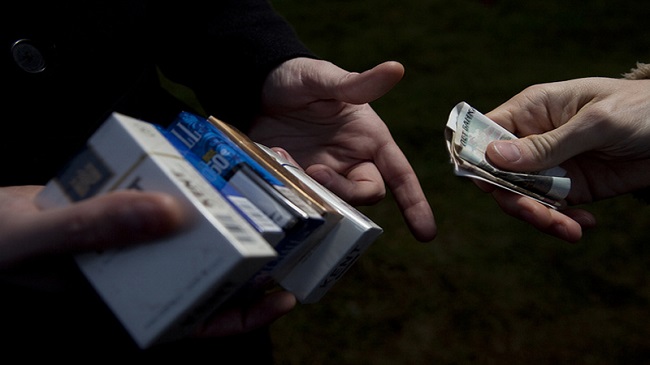Nations that are home to the largest tobacco corporations need to contribute more if countries are to recoup the $47 billion lost to the illicit tobacco trade each year. That is the message that rang out of talks around the Protocol to Eliminate Illicit Trade in Tobacco Products, which ended on Wednesday, November 17, 2021.

The message from anti-tobacco organisations – Corporate Accountability, and Corporate Accountability and Public Participation Africa (CAPPA) – echo the frustration of low- and middle-income countries during last week’s climate talks around the ongoing refusal of the world’s largest emitters to pay for the harms they’ve foisted on the rest of the planet. In the case of the illicit trade protocol, just a little over $4 million in additional funds are required over the next two years to ensure vital treaty implementation plans are not reduced or abandoned altogether.
“We’re struggling to muster millions that could net the global community tens of billions in reversing the tobacco epidemic. It’s inexcusable,” says Daniel Dorado, tobacco campaign director for Corporate Accountability.
One upshot of this week’s talks is the establishment of a $25 million investment fund that could provide about $1 million annually for treaty implementation. But as with the Protocol Secretariat’s budget, it’s realisation will require that countries not only fulfill assessed contributions (which many have failed to), but to increase their commitments.
Other sources of revenue may include no interest loans and contributions by new parties to the treaty. Though there are 182 parties to the World Health Organisation’s Framework Convention on Tobacco Control (WHO FCTC), only 64 parties have thus far adopted the illicit trade protocol.
The Protocol also has a provision to hold the tobacco industry legally liable for its historic complicity in tobacco smuggling. This could prove an important deterrent to Big Tobacco and a means of resourcing anti-smuggling operations.
“Illicit trade is a global issue that requires a coordinated, global response,” says Blanca Llorente, an economist with Fundación Anaás-Colombia. “It is clearly to the benefit of all parties to improve every country’s capacity to control illicit trade. Pooling resources is far more efficient than each country doing it alone.”
According to the Director-General of the World Health Organisation, ending illicit trade would reduce cigarette consumption by two percent. This would have the most profound public health benefits in the low- and middle-income countries where most tobacco users reside.
And as Dr. Tedros Adhanom Ghebreyesus, WHO FCTC Secretariat Head Dr. Adriana Blanco Marquizo, and other officials have punctuated in this week’s talks: for the Protocol to see such success, the industry can’t be allowed to meddle in its own regulation.
As at last week’s WHO FCTC talks, parties unified around a commitment to voluntarily disclose potential conflicts of interest, with the Latin America region taking the lead. Some civil society organisations, like Corporate Accountability and Public Participation Africa, attributed the speed, efficacy, and consensus during Protocol talks to the seeming lack of industry presence.
“After two weeks of climate talks overrun by fossil fuel industry lobbyists, the difference in how these talks is conducted is palpable,” says Philip Jakpor of CAPPA.
“Big Tobacco is still doing everything it can to derail progress, but this treaty and protocol haven’t been captured by industry. Both have safeguards against industry interference. Both have and continue to make critical progress.”
The next Conference of the Parties (COP) on the WHO FCTC and Meeting of the Parties (MOP) on its illicit trade protocol will be in Panama in 2023.
